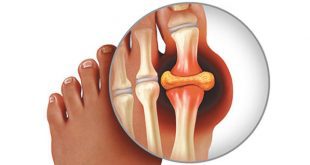Florida Heart Associates –


Women make up nearly half of all the cardiovascular deaths. Regardless of a woman’s racial or ethnic background, she is at risk for heart disease. In an effort to further awareness of a woman’s risk for heart disease and improve her heart health, the American Heart Association created the Go Red for Women Campaign which will take place throughout the month of February.
Modifiable (those we can change) risk factors for heart disease in a woman include diabetes, high blood pressure, high cholesterol, smoking, and a sedentary lifestyle. All women should know their numbers: their baseline cholesterol, blood pressure, body mass index, and blood sugar levels. If any of these numbers are elevated or abnormal, it is extremely important that those women work with their healthcare provider to manage their risk factors. All women should also employ a lifestyle of healthy eating habits and regular exercise to reduce their risk of heart disease.
Women should also be aware of symptoms of a heart attack which include chest pain or shortness of breath. They should also know the atypical symptoms of a heart attack such as back and neck pain, lightheadedness, indigestion, and weakness which frequently occur in women and they should not ignore these symptoms. If any of these symptoms occur, they need to see a healthcare professional right away.
Fortunately, numerous, innovative non-invasive modalities such as nuclear stress testing and coronary CT angiograms are available for early detection of underlying advanced heart disease or “clogged arteries.”
These noninvasive tests can determine if a person’s coronary arteries (those arteries that feed the heart) have underlying blockages that are preventing the adequate supply of blood to the heart muscle. The echocardiogram is an ultrasound modality that allows clinicians to evaluate the strength of the heart pump and assess for any underlying heart valve disease. If a blockage is thought to be present within the coronary arteries, an invasive coronary angiogram is often recommended. This special X-ray test takes pictures of blood flow within an artery once iodine dye is injected. If an advanced blockage is detected, an expandable piece of metal called a stent is often placed to open the blocked portion of the coronary artery.
Women carry a risk of heart disease that will increase during their lifetime. Living a healthy lifestyle, knowing their numbers, and having regular check-ups with their healthcare provider are essential for maintaining their heart health.
Elizabeth M. Cosmai-Cintron, MD, FACC, FACP
Dr. Elizabeth Cosmai-Cintron is a board certified cardiovascular disease specialist with Florida Heart Associates. She is interested in educating people on preventive heart care and maintaining good heart health through proper nutrition, exercise and reducing risk factors that leads to heart disease.
For more information or to schedule an appointment, please call her office at 239-938-2000 or visit her website at www.flaheart.com.
 Southwest Florida's Health and Wellness Magazine Health and Wellness Articles
Southwest Florida's Health and Wellness Magazine Health and Wellness Articles

